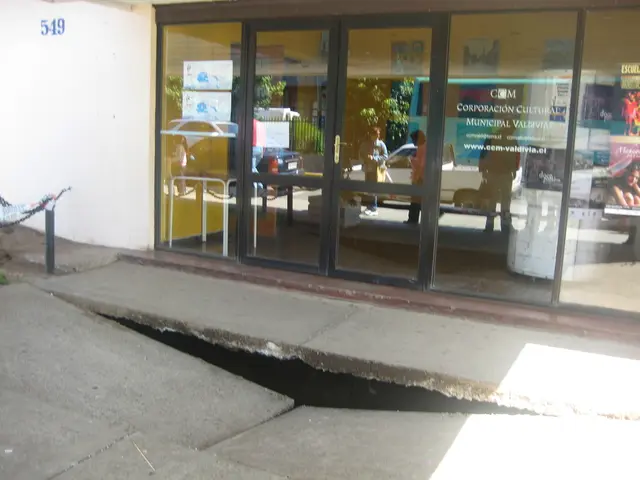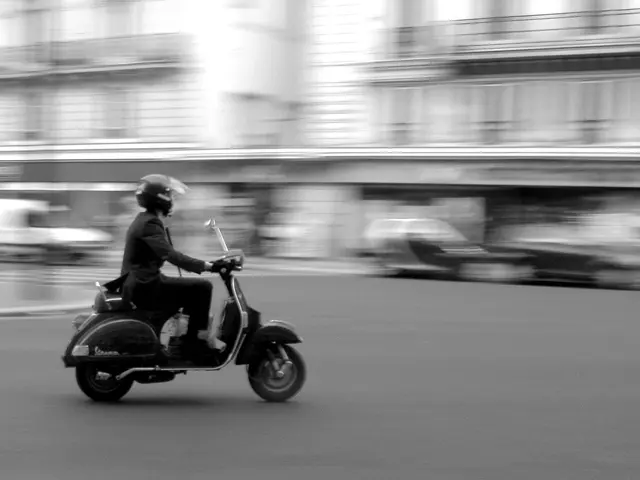Frequent severe e-scooter injuries predominantly involve males under the influence of alcohol
E-scooter accidents in Germany display distinct tendencies: they mainly occur late at night and during weekends. According to a study by the German Medical Journal, an impressive 538 severely injured individuals were recorded over three years, with 62% of them under the influence of alcohol. A research team suggests enforcing a helmet law to enhance traffic safety.
Sifting through the data, the team discovered that head injuries are diagnosed more frequently in e-scooter riders compared to cyclists and other road users. Intriguingly, eight out of the top ten most common injuries affected the head or face.
Almost half of the accidents happened at night, and weekends accounted for half of those incidents. Furthermore, alcohol was involved in more than 60% of the cases, with 35% of victims having a blood alcohol level above the legal limit.
Curiously, the average age of those affected was relatively low at approximately 44 years, markedly lower than the average age of individuals involved in comparable severe accidents involving bicycles, cars, or pedestrians. Moreover, 78% of the injured were male.
Michael Zyskowski from the Clinic and Polyclinic for Trauma Surgery at the Technical University of Munich (TUM) highlighted the higher occurrence of accidents among younger men in a TUM press release.
The research team recommends stringent safety measures to decrease the number of severe injuries. For instance, the introduction of a helmet requirement, similar to Australia's approach, could potentially reduce injuries. Additionally, city regulations such as Oslo's nighttime e-scooter driving ban from 23 to 5 am, or Helsinki's restrained maximum speed of 15 kilometers per hour at night on weekends, may be worth considering.
While these measures have yet to be thoroughly evaluated, Zyskowski advocates limiting e-scooter availability at night and in zones with a high accident risk. He also suggests including sobriety tests as a prerequisite for renting an e-scooter to reduce drunk driving incidents.
Moreover, TUM researchers suggest enhanced visibility for riders through improved lighting and reflectors. Additionally, the enforcement of existing road rules and good data collection are vital for informing safety measures. Germany already has legislation governing e-scooter use, and cities like Helsinki and Tallinn have demonstrated successful strategies for reducing nighttime collisions by limiting e-scooter availability during hazardous hours.
- The study in the German Medical Journal revealed that mental-health issues, such as impaired judgement due to alcohol consumption, could be a significant factor in the high number of e-scooter accidents that occur late at night and during weekends.
- General-news outlets should focus on the health-and-wellness aspect of e-scooter safety, bringing attention to the importance of helmets in preventing head injuries, which are more common in e-scooter riders compared to other road users.
- Science and city regulations can collaborate to improve e-scooter safety by implementing stricter safety measures like helmet laws, sober checks before renting, reduced e-scooter availability at night, and speed limits during hazardous hours, as demonstrated in cities like Helsinki and Tallinn.








